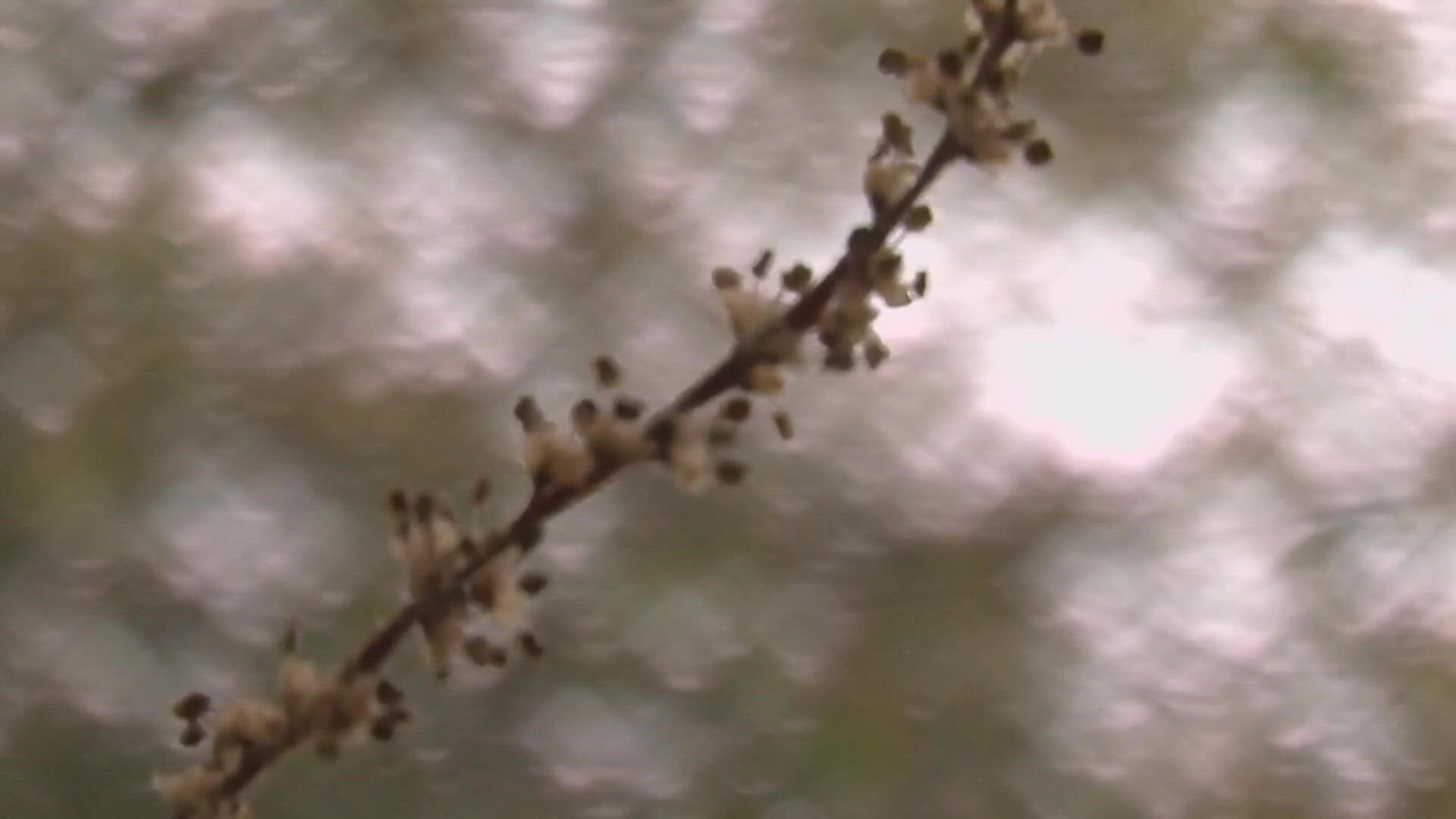ARIZONA, USA — The Valley's position as an allergy haven has always been a common misconception, but a recent study found just how incorrect that myth is.
Phoenix and Glendale were named as the second and third worst cities in the nation for people with seasonal allergies, a Forbes Health study said. The study used EPA, U.S. Census and the Weather Channel's allergy tracker for statistics on tree, grass and ragweed pollen, along with air quality.
The study also ranked Scottsdale as the 20th worst allergy city, along with Chandler as the 21st, Gilbert and Mesa tied for 24th, and Tucson as 52nd.
Researchers at the Arizona branch of the American Lung Association recently found that part of the blame lies in how hotter temperatures affect plants in the area.
"In the past three years, some of those years have been the hottest locally on record. That also makes allergy season and pollen season worse," said JoAnna Strother, a lobbyist for the association. "Pollen starts to form a lot earlier in the year and lasts longer because we have these warmer temperatures."
READ MORE:
The study dismisses a long-held assumption many non-southwesterners hold of Phoenix being an allergy haven due to its dry climate and desert ecosystem. The myth is so long-held that it's persisted since before Arizona was even a state when people with tuberculosis and asthma patients were flocking here.
"People thought the drier climate help people who had tuberculosis and, in fact, that's how the lung association started," Strother said. "Through science and lots of research, we found that really wasn't true ... especially with all of our climate burdens in Arizona. The warmer temperatures, the dust and the drought are definitely making our air quality worse."
The Valley's allergy problems are expected to get even worse in the near future.
The Southwest's ongoing megadrought has already caused more dust to be blown across Arizona, and while rising temperatures will make conditions even more dust, it will also whip more pollen into the state's air.
"Allergenic plants don't die off in the winter thanks to the warming weather, so we have a much longer allergy season than we used to have," public health nurse Ronda Seifert previously told 12News.
"In a warming world with more carbon dioxide, some allergenic plants produce more pollen than they used to and the allergenicity of the pollen, which is how allergic humans are to it, has worsened as well."
Arizona weather
Drought, wildfires, heat and monsoon storms: Arizona has seen its fair share of severe weather. Learn everything you need to know about the Grand Canyon State's ever-changing forecasts here.

